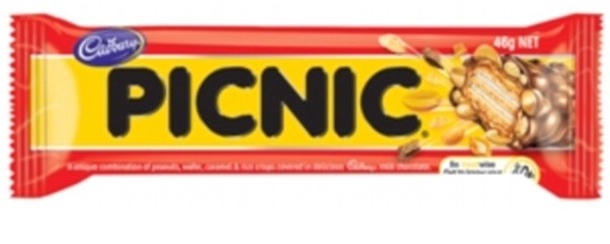Melbourne, August 10: Cadbury’s Picnic chocolate bar advertisement featuring a flight controller speaking with a thick ‘Indian’ accent, was taken off air last month, after being found that it ‘negatively stereotyped’ Indians.
The ad being broadcast on free-to-air TV was part of the Picnic brand’s “Obey your mouth” campaign featuring an Indian man reading out flight departure details into a microphone at an airport.
“There are more than 147,000 Indians residing in Australia, yet we don’t see Indians ever being portrayed on commercial Australian television … as doctors, engineers, lawyers, etc speaking in Australian accents, mixed accents and so on,” the complainant said.
“Instead, on the incredibly rare occasion that an Indian is seen on Australian television, he/she is portrayed in the most stereotypical and offensive manner.
“One member of my family actually asked ‘why do Australians always make fun of our accents if we’ve ever seen on TV?’”
The video featured the actor speaking erratically until he ate one of the chocolate bars.
The complainant said that the advertisement ‘exploits the often used caricature of the ethnic stereotype’ and was concerned with the exaggerated facial expressions.
“When attending speech therapy I came across people with severe facial grimaces just like in the Cadbury advertisement…
“Advertisements like this can undo all the good that has been done, because stutterers can mimic and remind themselves of bad occurrences”, he said.
Cadbury parent company Mondelez Australia said that the Picnic TV commercial (TVC) was “designed to appeal to our customers and in no way intended to offend or insult”.
It was meant to be “light-hearted” and “humorous”, Cadbury told the Advertising Standards Board in response to the complaint.
“The TVC aims to bring to life in a joyful and light-hearted way, the concept of our mouth craving for certain things at certain times, and in a humorous manner, suggests we obey these cravings,” Mondelez said.

Although the Advertising Standards Board said that including a man of possibly Indian origin in the ad reflects the diversity of Australian culture yet majority members ruled that the ad “depicted a man, on account of racial background, in a negative manner”.
Some members however, believed that the man’s ethnicity was not the focus of the advertisement.
Mondelez said it conducted “extensive consumer research” for the purpose of advertisement copy but their research did not suggest any ‘insulting’ or ‘offensive’ reactions or themes”.
Mondelez in accepting the board’s decision said the advertisement was ‘simply reflective of the diversity of Australia’s population’, and did not ‘portray or depict material in a way which vilifies a person or section of the community on account of race or ethnicity’.
Dr Lauren Rosewarne, an advertising expert and senior lecturer at Melbourne University, told SmartCompany that advertisers needed to move on from referring to racial stereotypes if they wanted to avoid being judged as insensitive.
“In 2016, it’s wasted energies to debate whether racial stereotypes are problematic,” says Rosewarne.
“Therefore, when a company decides to use such images in their advertising, not only is the company exposed as insensitive and lacking cultural awareness, but the extent to which their marketing is uncreative and old-fashioned is exposed.”
Shalini Singh
Similar Posts by The Author:
- Narendra Modi at the 16th BRICS Summit, meets Putin, Xi Jinping
- Diwali 2024 : Celebrate India Inc. brings 19th Fed Square Diwali on October 26
- Racism rears its ugly head during council elections, as Jamel Kaur Singh & others found out
- $400 School Saving Bonus will help busy Victorian families
- Aussie Indian Alexis Dennis opens up on racism in Australia

